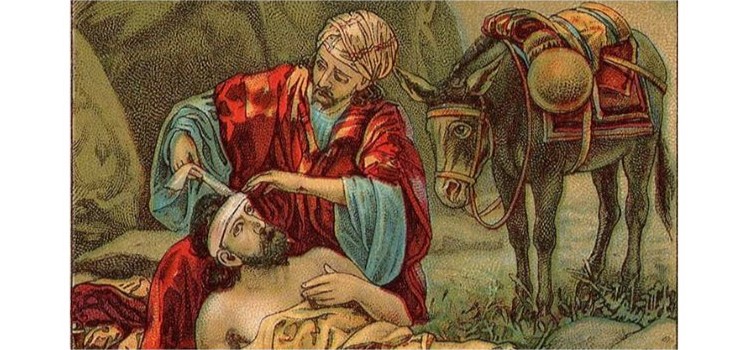(The following account is a narrative of the parable told by Jesus in Luke 10:25-37 KJV).
Beaten and bloodied, a Jewish man was sprawled, half dead, on the dusty road that led from Jerusalem to Jericho. Robbed of his possessions and stripped of his clothes, the flies swarmed around his wounds as the sun beat down on the exposed flesh. Incapable of helping himself, his body grew weaker and weaker.
A ray of hope shone through the fog of pain and semi-consciousness as he sensed someone approaching. Help was on its way. A priest, a professed servant of God, passed by; but upon seeing the man in need, he walked to the other side of the road, not wanting to be hindered in his journey with an unpleasant task. He walked away, studiously ignoring the dying man. Shortly thereafter a Levite passed. He stopped and looked at the wounded man, seeing his horrific condition. With a grimace, the Levite crossed the road and continued his journey.
Life was ebbing out of the man as his wounds continued bleeding. He was thirsty, tired, in pain, and now without hope, as “religious” people walked by without helping. He welcomed the darkness of death that hovered around him as an escape from his miserable condition.
Suddenly, the man felt gentle hands on his body, binding his wounds. His head was lifted and in the distance he heard a voice saying, “Drink, my friend.” Cool water poured into his parched throat. As he became more aware of his surroundings, he realized it was a Samaritan man ministering to him. The Samaritans were scorned and segregated from the Jews, and yet this Samaritan was saving his life.
The Samaritan placed the Jewish man on his donkey and took him to an inn. The next day, the Samaritan gave money to the inn keeper and instructed him to care for the wounded man. “I will return and repay whatever more you spend.”
Jesus told this parable in response to a question posed by a lawyer. Jesus and the lawyer agreed that eternal life is given to those who love God with all their heart and who love their neighbor as themselves. But, “Who is my neighbor?” asked the lawyer. Jesus then told this parable of the “Good Samaritan.”
The true neighbor was not the man of the same race or tribe. It was not the one who was faithful to worship in the temple. The true neighbor was the stranger, the one who sacrificed to help in time of need. This is the kind of love which opens the gates of heaven.
Eternal life, while a gift of God, is given to those who love God and their fellow man. Love is not in word but in action. There are many in our world, whether across the ocean or across the street, who are hurting and need help.
True Christians show the love of God through helping those who cannot help themselves. This is foundational to Christian living. Some people put more focus on their own righteousness and devotion and minimize the duty of giving to the physical, emotional, and spiritual needs of humanity.
The Samaritan, who ministered to the physical needs of the wounded, was Christ’s example of someone loving his neighbor as himself. So Christ said to the lawyer as He still says today: “Go, and do thou likewise.”
—mws







